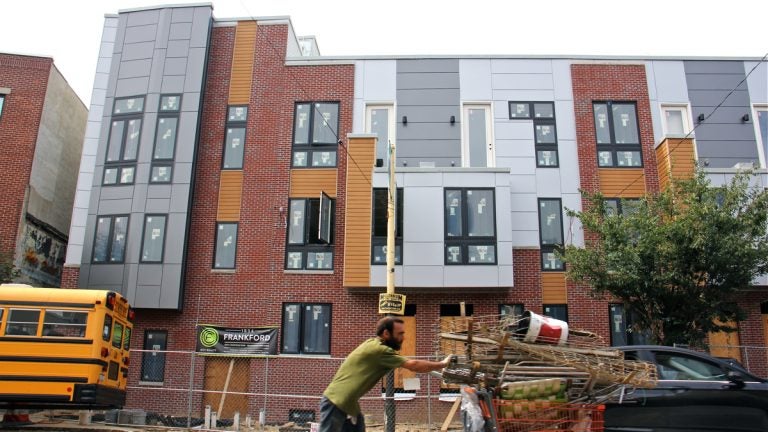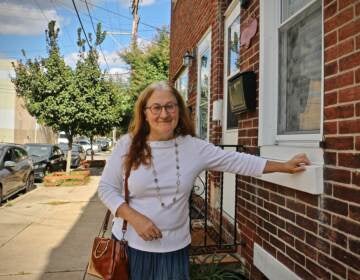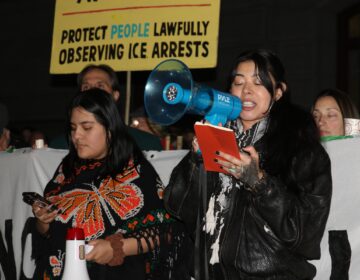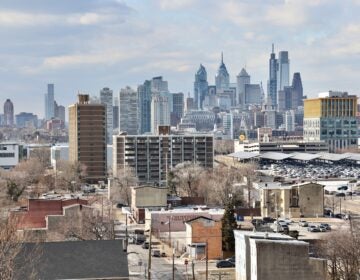Philly gets another $35 million for rental assistance, but it’s far from enough
Tens of thousands of people affected by the pandemic are still waiting for help from the city’s emergency fund. The additional money will help just a fraction.

This November 2019 photo shows new condos at 1834 Frankford Avenue (Emma Lee/WHYY)
Philadelphia has received what could be the final tranche of federal funding for its Emergency Rental Assistance Program, potentially leaving thousands of needy renters and landlords out of luck.
Since launching in May, the program has distributed just shy of $200 million to 33,456 households hit hard by the pandemic, according to a city dashboard.
To date, the city has received 66,597 applications, with more rolling in each day.
“It’s a difficult situation when you have a program that provides assistance and support for folks, but you don’t have enough resources to provide the help that’s out there, that’s needed,” said David Thomas, president of the Philadelphia Housing Development Corporation, the nonprofit managing the program.
PHDC recently received approximately $35 million directly from the U.S. Department of Treasury, Thomas said. Based on the average amount of money disbursed through the program each week, that’s enough cash to keep things going until mid-November. The additional funding could help roughly 4,600 more households.
More funding may be on the way, according to Thomas, but it’s unclear when it might arrive or how much Philadelphia will receive.
The federal government has not announced any additional funding for rental assistance.
There’s been talk of redistributing ERAP dollars — which come through the state — from Pennsylvania municipalities that haven’t been able to disburse it to those seeing high demand, like Philadelphia. Those discussions have yet to yield a concrete plan.
“At this point we are still working on determining a plan for redistribution. Once that is finalized, we’ll be able to share more,” said Ali Fogarty, communications director for the state’s Department of Human Services, in an email.
PHDC spokesperson Jamila Davis said state officials have hinted that Philadelphia could receive around $7-20 million — a sum that would last approximately one to three weeks — through the redistribution process, but that no funding has been promised.
City Councilmember Kendra Brooks, a renter herself and one of the legislative body’s fiercest housing advocates, said the situation highlights the need for Philadelphia, the poorest big city in the country, to find structural, long-term solutions to stabilizing its affordable housing market, including potentially implementing rent control measures, particularly for seniors living on a fixed income.
“We have to take care of our citizens,” said Brooks.
In the meantime, Greg Wertman, president of the Homeowners Association of Philadelphia, predicts some property owners will decide to sell rather than wait for the next round of rental assistance, especially members who were unable to collect rent for months while the city’s eviction moratorium was in place.
Wertman said those sales will shrink Philadelphia’s already limited supply of affordable rental units because some buyers will want to make them market-rate apartments rather than maintain them as affordable housing.
“If some of these landlords aren’t made whole or aren’t at least thrown a lifeline, they’re going to sell. They’re out,” said Wertman.
A recent survey conducted by researchers at the University of Pennsylvania and Harvard University found that nearly 21% of Philadelphia landlords listed a property for sale in 2020, compared to 3.5% in 2019.
While a greater share of larger landlords with 20 or more units listed their properties for sale, small landlords — who provide the bulk of the city’s affordable housing stock — were also looking to get out.
WHYY is your source for fact-based, in-depth journalism and information. As a nonprofit organization, we rely on financial support from readers like you. Please give today.









